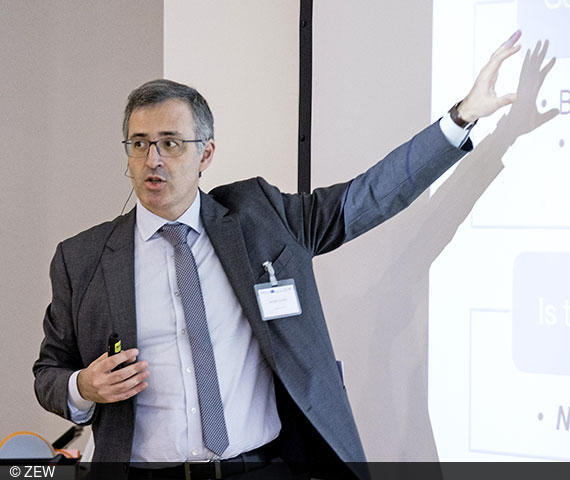ZEW Conference at the Intersection of Public Finance and Development
ConferencesOn 8 and 9 May 2017, the Centre for European Economic Research (ZEW) organised the annual ZEW Public Finance Conference in cooperation with the „Arbeitskreis Europäische Integration“ (AEI). Over the course of the conference, around 100 participants were offered a varied programme which featured numerous presentation on recent research findings from all areas of public economics and political economy. During this year's conference, special emphasis was placed on empirical research at the intersection of public finance and development.
At the beginning of the conference, Sergei Guriev, chief economist at the European Bank for Reconstruction and Development and professor of economics at the Paris Institute of Political Studies (Sciences Po), held a keynote speech on the distributional implications of the transition from a planned to a market economy. With the help of survey data on former communist countries, Professor Guriev explained that only a fraction of the population benefited from income increases after the transition. In fact, growth in disposable income was only observed in the long term. This development could in turn lead to a negative perception of transition and strengthen radical political parties.
Digitalisation not a “one-size-fits-all“ strategy for reducing poverty
In the second keynote speech, Ravi Kanbur, professor of economics at Cornell University, USA, highlighted the potential as well as the limits of using digitalisation for targeted fiscal transfers with the objective of reducing poverty. By assessing data on reforms in developing countries, Professor Kanbur showed that increased digitalisation can in fact make a major contribution to combating unjustified transfer payments. However, it cannot solve all fundamental problems associated with targeted transfer payments. This is why digitalisation is not a "one-size-fits-all" strategy for ensuring an efficient distribution of public funds.
Presentations covered a broad range of topics in the field of public finance and political economy
The workshop furthermore consisted of 15 sessions during which participants had the opportunity to present their current research findings. These findings were subsequently discussed by fellow presenters and the audience. The presentations covered a broad range of topics, including the impact of taxes on investment decisions and profit shifting behaviour of firms. In addition to the effects of fiscal decentralisation, the workshop also provided a platform for in-depth discussion of government transfers as well as the distributional effects of fiscal policy measures.
